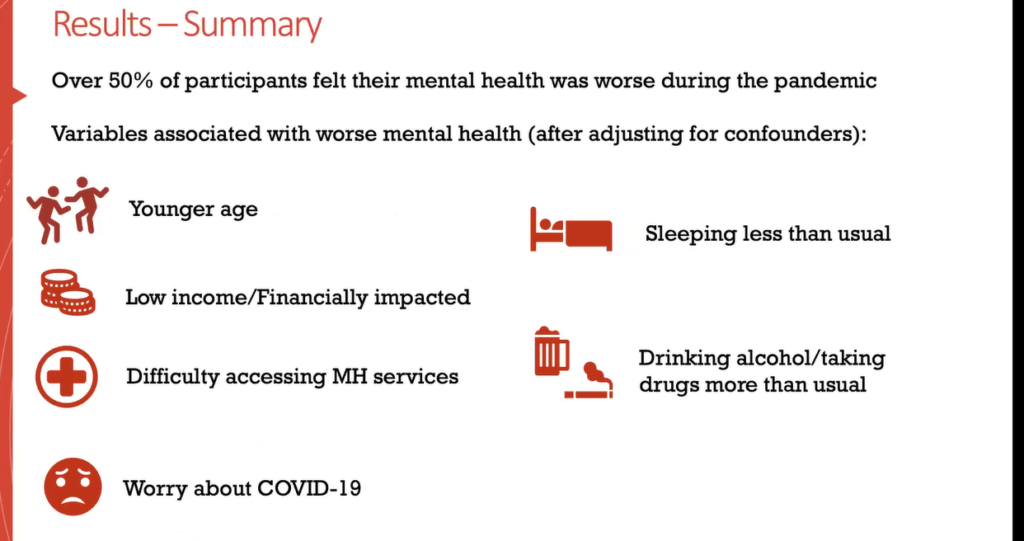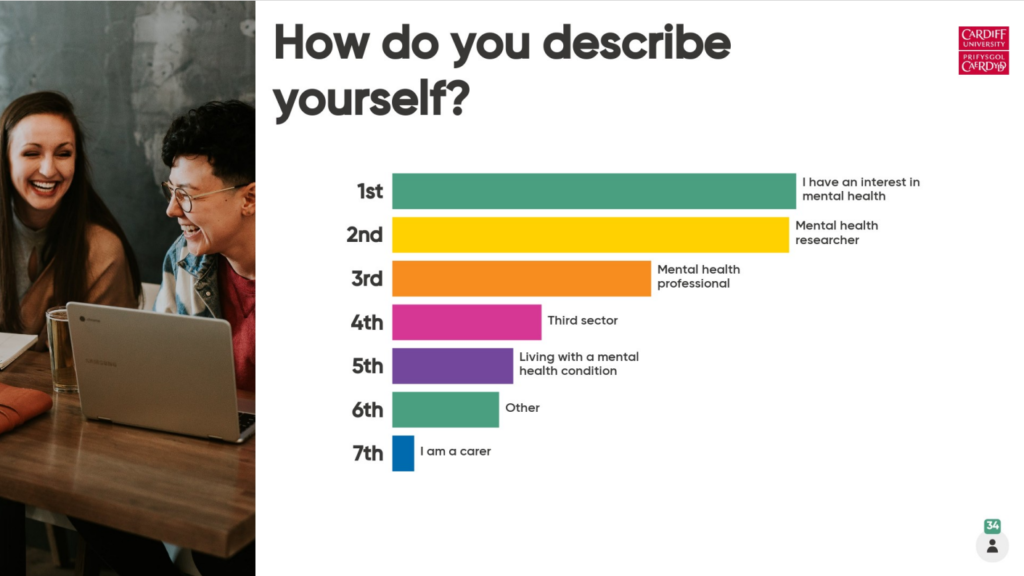Posted October 19th 2021
Attendees were updated on a range of topics from the history of NCMH, to the challenges facing mental health research in light of the COVID-19 pandemic, and the future of NCMH.
Over 50 people joined us in attendance for a series of talks.
Unfortunately, the event couldn’t take place at our headquarters in the Hadyn Ellis Building, but our online format meant we could welcome guests from all over, including Sweden and Germany.
Mental health research and the impact of COVID-19
Professor Jones began the talks with an overview of our work from the last ten years and how COVID-19 forced changes to our practices:
“If you had to summarise what NCMH is mainly about, it’s the link between the research community and mental health in Wales and the NHS, to people with lived experience, to conditions that we study and to the wider Welsh public for a range of activities, including recruiting for studies.”
“COVID-19 has meant that our recruitment in our studies has been impacted and paused, but it has also given us some other opportunities, to look and conduct research to address the impact that COVID-19 has had on people with a history of mental illness. Over 3,000 people helped with those studies.”

Professor Jones discussed the results of NCMH’s COVID-19 study.
Bangor University’s Dr. Anne Krayer took over to tell us about her research work and the importance of a diverse background in research.
Professor Ann John of Swansea University highlighted the importance of routinely-collected data to provide a voice for those less likely to participate in surveys, noting that they’re often from poorer backgrounds.
An exciting future ahead in research
NCMH deputy director Professor Jon Bisson then talked about the development of new treatments and resources within mental health and NCMH’s connections to realise future plans:
“What we’re aiming to do within NCMH is to increase our applied research portfolio. We want to take some of the findings we get from our epidemiological and data linkage work and think how we could use some of that information to better develop and design interventions that can really make a difference to people in the future.”
Dr. Sarah Rees and Alan Meudell emphasised the importance of public involvement in our research before Dr Steve Beyer updated us on Learning Disability Wales’ progress and how it’s contributing to helping people with learning disabilities secure employment.

We asked attendees how they described themselves in relation to mental health to understand who was in our audience
The afternoon ended with a Q&A session with our panel, followed by each of their thoughts on the future of mental health research.
Ending with what the panel are most excited about for the future of mental health research, Alan said, “The biggest challenge is increasing the number of opportunities for people to be involved in research, and solving that problem is what gets me up in the morning.”
You can help us move towards our goals of increasing public involvement in mental health research by completing our online survey, which is open to all and takes no longer than 20 minutes to complete. Thank you.
Watch the full webinar:
Resources
- NCMH Resources | An overview of our resources for a range of mental health conditions
Read more
- NCMH study | COVID-19 study
- NCMH study | Online study
- NCMH blog | The effect of the Covid-19 pandemic on people with learning disabilities
Sign up now and receive new blog posts to your inbox.
